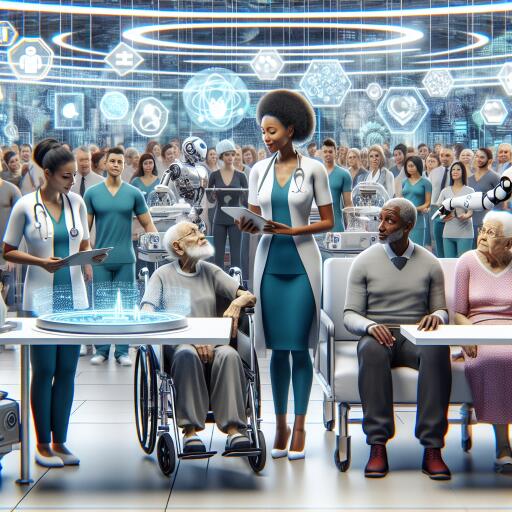Digital Health Care: Can We Avoid This Revolution?
The digital era has ushered in transformative changes across industries, with one of the most impactful shifts being in healthcare. The fusion of technology with health care, widely referred to as digital healthcare, is not just an advancement but a necessary evolution. Industry 4.0, a concept that originated to describe technological advancements in manufacturing, extends far beyond its initial domain, particularly influencing healthcare in profound ways.
The progression from traditional practices to a digital healthcare system mirrors the broader adoption of Industry 4.0 principles such as automation, data exchange, and technologies like the Internet of Things and big data analytics. These elements form the backbone of Healthcare 4.0, fostering an ecosystem where intelligent machines, data analytics, and human expertise converge to enhance patient care, reduce costs, and improve operational efficiencies.
Healthcare is experiencing an unprecedented integration of technological innovations, from augmented reality in surgical procedures to autonomous robotics for patient care. The potential benefits are immense, offering improved diagnostic and treatment accuracy, financial savings, and more personalized patient experiences. Yet, with these advancements come significant challenges, including concerns over data privacy, the complexity of integrating new technologies, and potential disparities in access to care.
As we stand on the brink of what could be the most significant revolution in medical history, the next 5-10 years promise pivotal changes driven by tools like artificial intelligence (AI), machine learning, and virtual reality. These innovations are poised to redefine all aspects of healthcare, including patient care, medical education, and research. AI, in particular, is expected to revolutionize diagnosis and treatment plans, enhance efficiency by automating repetitive tasks, and empower patients in their health management. Nonetheless, this technological leap necessitates a balanced approach to mitigate risks such as the potential dehumanization of care and the amplification of existing health inequities.
The uptake of digital health technologies poses its own set of obstacles, including the pace of adoption due to regulatory and commercial uncertainties. The disparity in digital literacy, especially among older demographics, further complicates the widespread deployment of these innovations. Thus, creating digital health solutions that are both affordable and user-friendly remains crucial.
Besides technological hurdles, ethical considerations loom large. The involvement of tech giants in health data management introduces pressing concerns about user privacy and consent. The landscape of health data is expanding, with an increasing amount of information being generated from wearable devices and social media. This shift necessitates stringent measures to protect individual privacy while harnessing the benefits of digital health.
Another promising yet challenging area is the integration of genetic information into routine healthcare. Although genetic profiling is becoming more accessible, its incorporation into standard medical care is limited. Personalized healthcare, powered by genomics, presents a future where treatments and preventive measures can be tailored to the individual, yet achieving this vision requires overcoming significant interpretation and ethical hurdles.
In conclusion, the COVID-19 pandemic has both tested and highlighted the vital role of digital health technologies. These solutions have proven critical in navigating the challenges presented by the pandemic, showcasing the potentials and pitfalls of rapid technological adaptation in healthcare. As we look forward, addressing the multifaceted challenges—ranging from interdisciplinary collaboration and privacy concerns to social media’s impact on health knowledge—will be essential in realizing the full potential of digital health in reshaping medical care for the better.
Indeed, the revolution in healthcare is inevitable. The question is not if we can avoid it, but how we can navigate its challenges to harness its full potential for a future where technology and health care are inextricably linked.










